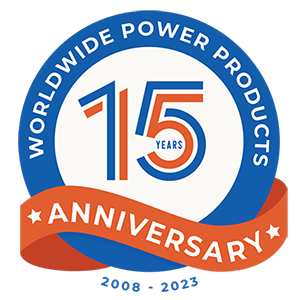Inadequate Power Generation – The Nigerian Power Sector
For the last several decades, the Nigerian power supply has been an ongoing issue. Over this time, excessive amounts of time, effort, and most notably, money have been spent to secure an adequate power supply to Nigeria. However, unsuccessful governmental policies, among other failures, have fallen in the way of installing effective energy sources and power supply to the area.
To date, there have been several major barriers to achieving an adequate power supply in Nigeria. A significant hindrance has been the amount of capital (money) needed to produce a constant power supply in the country. More specifically, Nigeria has endured a great deal of trouble securing enough funding to develop any sort of new energy sources, or maintain old ones. Thus, making it extremely difficult to find steady power throughout the country.
As the Executive Vice President of Worldwide Power Products, I realize not only the importance of viable energy sources, but also the difficulty in achieving such a steady supply. In addition to the struggle to secure funding for adequate power sources in Nigeria, the fight for proper power generation is also an issue. In contrast to countries, similar in size, or even larger, Nigeria and its more than 150 million citizens live with an entirely insufficient power generation supply.
While the country of Nigeria has a limited number of power plants still active, they are largely outdated and produce power extremely inefficiently. With a number of the country’s power plants dating back multiple decades, it is in dire need of updated hydro and thermal plants to improve all reliable energy sources. What’s more, additional issues, such as vandalism, lacking preventative maintenance and infrastructure bottlenecks, among other hindrances, largely play into the country’s energy issues. Also, there have been an unjust number of injuries and deaths to qualified sector personnel that have set the country back, along with its increasing dependence on foreign aid.
Furthermore, sector reform is a major issue for the Nigerian power supply. While no such reform has taken place as of yet, certain aspects have been targeted for improvement by the government. Areas of interest, such as, improving regulation within the industry, an increased framework to encourage the involvement of private investors, as well as, the enticement of industry competition among energy companies, are all among the Federal Ministry of Power’s top concerns. Another area of interest for sector reform is the implementation of tariffs on utilities that more accurately reflect the market, and subsequently lure private investors to take notice.
Nigeria’s current transmission network is lacking in a very basic way. The network is currently failing to transmit whatever power is being generated from the current sources to the intended destinations. Additionally, there have been an exceedingly high number of transmission loses, which certainly does not help the issue, in fact it only worsens the situation.
Another substantial challenge for Nigeria’s power sector is the ineffective method of billing and meter tracking. This issue is at the core of the Nigerian power sector. Without proper billing and metering procedures, it is practically impossible for there to be any further development and progress in the sector. Due to such continued inefficiency of billing and meter tracking, resulting in a consistent loss of revenue, the distribution companies (DISCOS) are not only failing to make any sort of profit, they are potentially losing substantial amounts of income, and investors are subsequently without any ROI.
As a proponent for improving the Nigerian power sector, myself, as well as, Worldwide Power Products feel that more should be done to make the necessary improvements. There needs to be a united front between the DISCOS, the generation companies (GENCOS), private investors, and the government, in order to see change. In other words, Nigeria needs help to supply adequate power to the nation as a whole. From DISCOS, such as Yola Distribution Company, to GENCOS, such as Sapele Generation Company, and agencies, including the Nigerian Electricity Regulatory Commission, the power sector needs reform.
Without question, the Nigerian power sector is in need of new and improved energy sources; diesel generators and natural gas generators are simply not going to meet the demand that certain parts of the country have, and currently rely upon. Not to mention, the money involved in diesel generator maintenance and the preventative maintenance involved is simply inefficient. While, the current Nigerian administration and other forms of government are making it a top priority to work on the challenges of policy reform to ultimately tap newer and better energy resources, increased capital is still greatly needed to make such a reality.
Luckily, the Federal Ministry of Power is taking on the many issues involving the country’s power supply. However, the key to the future success of the Nigerian power sector will likely depend a great deal on securing private investment funding. With the proper policies in place and the continued avocation by President Goodluck Jonathan, the Ministry of Power will hopefully get the power sector on track.
To this point, the Nigerian power sector has used government mandates, such as the 2001 National Electric Power Policy, and the more recent Power Sector Reform from Summer 2010, but the country needs more private investors. With the necessary improvements in the power sector, Nigeria hopes to become “one of the 20 largest economies in the world by 2020.” This is entirely possible, but as mentioned, there needs to be a further injection of funding from investors to the power sector.
At Worldwide Power Products we support the private investment in the Nigerian power sector and encourage all those interested to contact the Nigerian Ministry of Power.











